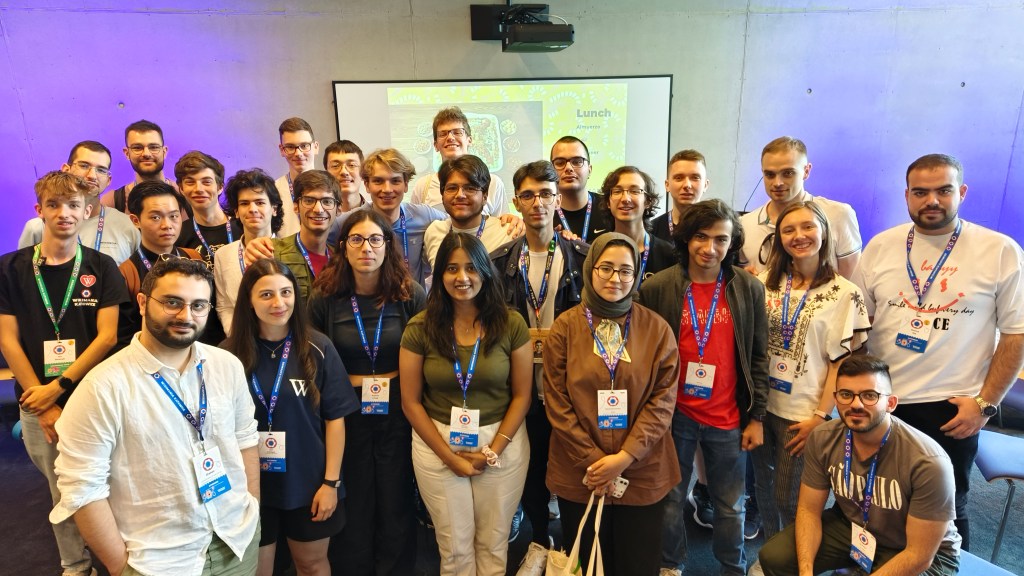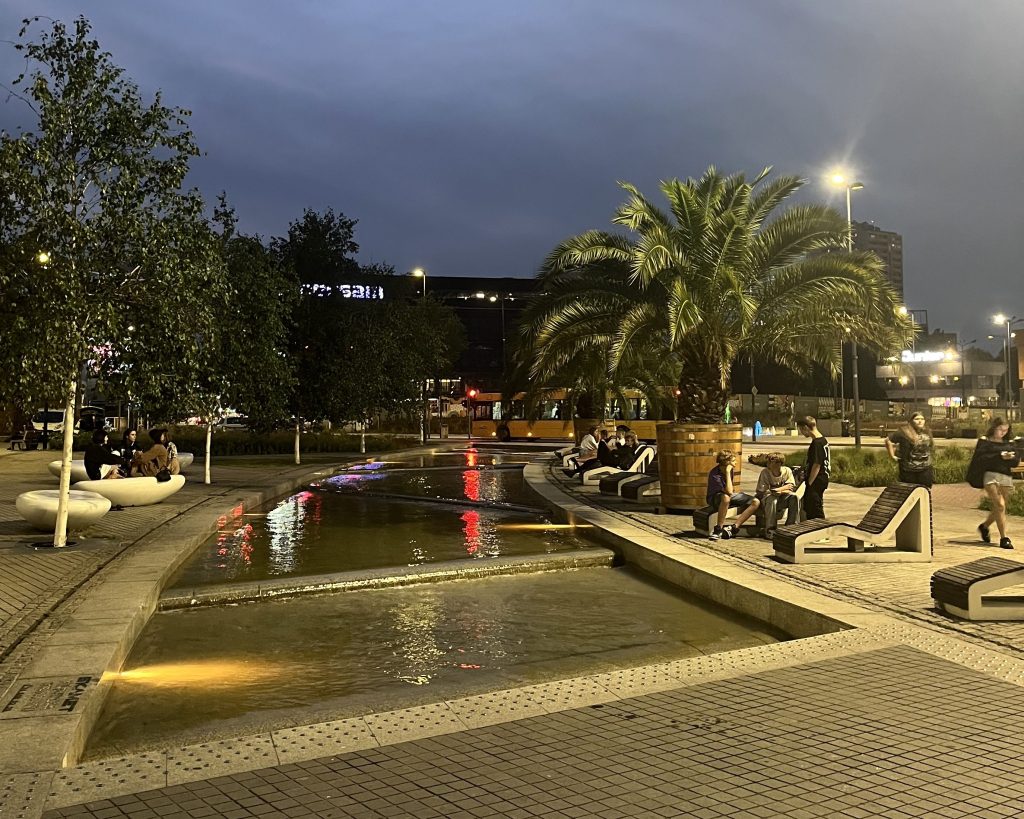Everyone can have milestones in their lives. For me, Wikimania 2024 Katowice is a milestone. I would like to share with you my experiences at Wikimania 2024 Katowice, which took place between 7-10 August 2024.
After a nice breakfast with the Wikimedians at the hotel, I arrived at the conference center to attend the first session. I attended several sessions and I would like to tell you a little bit about some of them.
Charts, the successor of Graphs: A secure and extensible tool for data visualization by Szymon Grabarczuk and Chris Ciufo

Kurmanbek, CC BY-SA 4.0
In this session, Szymon Grabarczuk and Chris Ciufo gave a presentation on their Chart extension on Wikipedia. (I was familiar with Graphs because it’s something we often use in articles in the Turkish Wikipedia. However, as they showed in the presentation, there has been a problem with this plugin for some time and it is disabled.)
They mentioned that Graphs is a flexible way to visualize data on Wikis, is editable, can be added to articles using templates, and is interactive (sometimes). They then stated that Charts, which they developed themselves, is more accessible, translatable, interactive and secure by design. And what are their future plans? In the future, they are planning on adding data filtering, customization options, translation support, lightweight interactivity and more chart types to the plugin.
When I did some research on the Charts extension, I found that there is a team of 8 people working on it. Frankly, I am very excited to test and use this extension on Turkish Wikipedia when the time comes.
Young Wikimedians Meetup

Finally, the Wiki youth met and joined forces! Young Wikimedians from various regions came together to raise and discuss the problems of engaging young people in Wikimedia projects in their localities. As far as I remember, what we all had in common was the difficulties we had in retaining and motivating the new young people. Since I have experienced this difficulty from time to time in my own location, I shared with the participants the results of a test I conducted.
In this test, I introduced my friend to the Wikimedia projects to Wikipedia, as well as other projects such as Wikimedia Commons and Wikidata. I even showed him that with a Wikipedia and Commons app on his phone, he could practically contribute to Wikimedia projects wherever he was. This method worked. He’s now making various contributions to projects such as Wikipedia and Commons.
The Heritage Guard Network: Figuring Out How to Crowdsource Digitization of Cultural and Natural Heritage Under Threat by Olesia Lukaniuk, Eric Luth and Mehman
I also listened to the presentation of this project, which is a collaboration between Wikimedia Sverige, Wikimedia Poland, Wikimedia Ukraine and Wikimedia UG Georgia. I was interested in this project because I had made the logo for it and I was curious about the crowdsourcing of data and information on endangered cultural and natural heritage. The project, which started in December 2023, will formally end on February 28, 2025.
In the presentation, I learned that each community is interested in a working group, so they complement each other:
- Risks: Wikimedia Ukraine (Exploring potential difficulties and challenges with making content and data available, security concerns for volunteers, identify and compile information about existing cultural and natural heritage institutions and their data sets in the Baltic Sea region and Exploring the intersection of digitization of cultural and natural heritage in danger.)
- Technology & Content: Wikimedia Sverige (They are currently working on developing guidelines on how to document endangered cultural and natural heritage.)
- Engagement: Wikimedia Poland (They are currently working on volunteer engagement through social media, cultural institutions, conservation, protection of heritage during natural disasters and armed conflicts.)
- Legal and Copyright: Wikimedia UG Georgia (Studying the copyright laws of countries, checking the Freedom of Panorama status and Studying the EU directive.)
What I learned from the whole presentation is that it is always fruitful when different communities come together and work together for a common goal. I think all communities should do similar projects and collaborations.
Like a much-loved snack — Lightning Talks!

I’ve always loved Lightning Talks. I don’t think there is anything better than that to get interesting information from many speakers on many different topics in a short amount of time. Even when I had to leave the session, I kept wondering in the back of my mind what was being said 🙂
School Wiki – A wiki of schools using Mediawiki by ranjithsiji
I would say this session is quite interesting. Because in the state of Kerala in India, the Department of Education in Kerala has set up a Wiki for schools. The content of this Wiki, which is intended to showcase students’ creative work and activities and details of schools, is developed by teachers and students. Stating that there is a special code for each school, Ranjithsiji said that 15 thousand schools have already been registered since 2010.
This session was very interesting for me. Because using MediaWiki tools in this way is fantastic!
Monsters, legends and mythical creatures: A Wikidata Folk(lore) Tale by Sara Thomas
Have you ever heard Wikidata as a story? I think not. Sara Thomas did a very nice data storytelling about Cultural Heritage, Wikidata, OpenRefine. I highly recommend you watch it again and again instead of telling it!
Navigate the web with Wikidata by Toby Hudson / 99of9
Did you know that you can access Wikidata information about anything on the Internet with a browser extension? I didn’t know about it but after I learned it, I loved it. You can instantly view Wikidata elements for everything from an animal you’re researching to an artist you’re listening to. I don’t know how it does it in the back, but it’s phenomenal! I’ve already started using this plugin on my own computer right now.
Scalable duplicate photo detection for Wikimedia Commons by Zache
I was introduced to a great bot for finding duplicate photos uploaded to Commons. As I understand it, the bot translates the images into various patterns, captures images with the same pattern, and identifies them as duplicates. It sounds very interesting and impressive.
CEE Youth Game Day
As CEE Youth Group, we had a lot of fun with various general knowledge and board games set up along a long table in the conference avenue. Some Wikimedians also had a lot of fun playing the games. Especially the general culture games. I even played one myself. I was quite amused and surprised by the word similarities in the game Mari led, where we had to guess the meaning of the similar words of the languages of the CEE region.

After finishing the gaming event, we had dinner together with Taufik and Eugene to celebrate both our friendship projects and my receiving the Media Contributor award this year. During the dinner, we exchanged ideas on bigger and exciting future collaborations. That was exciting!

Can you help us translate this article?
In order for this article to reach as many people as possible we would like your help. Can you translate this article to get the message out?
Start translation

